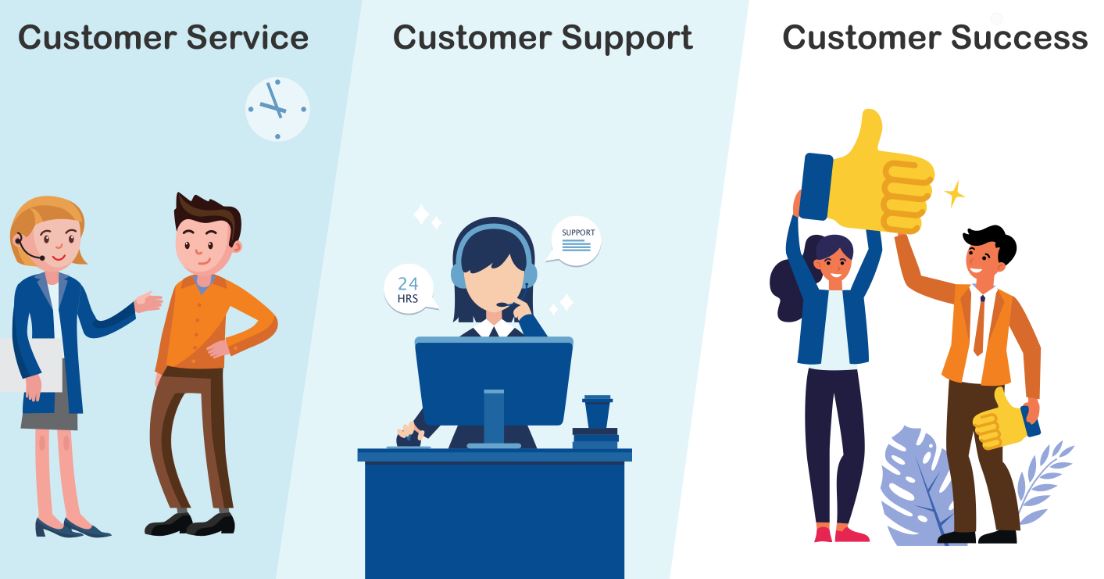Remote Customer Service Essentials
Remote customer care is an essential component of modern business operations, particularly with the development of remote work and internet interactions. To excel in this sector, several critical components must be in place. First and foremost, effective communication skills are essential. Remote customer care workers must be skilled in communicating information clearly and effectively, whether via textual means such as email or chat, or verbally over the phone. Empathy and patience are also important qualities for dealing with consumer inquiries and issues in a calm and sympathetic manner. A thorough understanding of the products or services on offer is also required to provide accurate and useful support to customers. Furthermore, expertise with necessary technology and customer relationship management (CRM) systems is essential for effectively managing client contacts. Time management skills are also required to balance various consumer requests while providing outstanding service. Furthermore, problem-solving skills are extremely useful for addressing consumer difficulties and devising inventive ways to fulfill their needs. Finally, a good attitude and desire to go above and beyond for consumers can improve the overall customer service experience and build long-term client loyalty. By focusing on these elements, remote customer service representatives may effectively meet the demands of their clients while also contributing to the success of the companies they represent.
[adinserter block=”1″]
Set Up Your Workspace
Setting up your workstation for remote customer support is critical to productivity and efficiency. Begin by establishing a designated space in your home that is peaceful, well-lit, and distraction-free. Invest in a comfortable chair and workstation configuration that encourages proper posture and reduces discomfort over extended periods of work. Make sure your workstation has dependable internet connectivity to avoid disruptions during customer encounters. Organize your workstation so that key tools and resources are easily accessible, such as a computer or laptop, headphones, notepads, pens, and any reference materials. Consider utilizing noise-canceling headphones to block out background noise and stay focused during phone calls. Personalize your workstation with motivational trinkets or plants to foster a good and motivating atmosphere. Set boundaries with household members to reduce disruptions during working hours, and communicate your timetable to ensure continuous focus throughout customer contacts. Finally, keep your desk clutter-free by frequently clearing and organizing things to foster a clear and concentrated mentality. Setting up your workstation deliberately and intentionally can help you succeed in remote customer service tasks.
Essential Skills for Success
Essential abilities are the foundation for success in remote customer support positions. Among these, communication is key. Clear and succinct communication, whether written or verbal, is essential for understanding customers’ demands and giving efficient help. Active listening skills enable customer care agents to understand the underlying causes of consumer inquiry and respond accordingly. Empathy is another essential skill that allows reps to empathize to their customers’ worries and provide sympathetic support. Adaptability is essential for handling the wide range of consumer contacts and ever-changing conditions. Technical skill is required for successfully navigating customer relationship management (CRM) systems and troubleshooting technical issues. Representatives that have strong time management skills can successfully balance multiple activities and prioritize critical questions. Problem-solving skills enable representatives to approach client challenges imaginatively and discover appropriate solutions. Furthermore, resilience is essential for retaining composure and professionalism under difficult situations. Collaboration abilities enable teamwork and cooperation among coworkers to overcome challenging problems. Finally, a good attitude and customer-centric mindset are essential for establishing rapport and cultivating long-term client connections. By mastering these critical abilities, remote customer service representatives may flourish in their professions and provide great service that exceeds client expectations.
[adinserter block=”1″]
Finding Opportunities
Identifying remote customer service prospects necessitates a proactive strategy and strategic mentality. Begin by investigating trustworthy organizations that provide remote customer service employment that match your abilities and interests. Use employment search engines, professional networking sites, and corporate career pages to find potential openings. Tailor your CV and cover letter to showcase relevant experience and qualifications, with a focus on communication, problem-solving, and technical skills. Consider reaching out to people in your network for referrals or information about potential career opportunities. Attend virtual job fairs, industry conferences, and webinars to broaden your network and discover untapped prospects. Additionally, look into freelancing or contract work networks where organizations post remote customer support jobs. Be persistent and follow up on applicants to show your excitement and dedication. Prepare for interviews by practicing typical customer service scenarios and demonstrating your ability to deliver outstanding remote help. Maintain an open mind and be willing to consider part-time or temporary jobs as stepping stones to longer-term prospects. By actively looking for remote customer service positions and properly exhibiting your abilities and expertise, you can boost your chances of obtaining rewarding opportunities that match your professional objectives and desires.
Maximizing earnings
Maximizing profits in remote customer service positions necessitates a deliberate approach that prioritizes efficiency, performance, and possibilities for promotion. Begin by discovering high-paying remote customer service opportunities in your field, then target organizations that offer competitive salary packages. Consider obtaining certifications or additional training to improve your abilities and qualifications, increasing your value to employers. Negotiate your pay or hourly rate effectively during the hiring process, leveraging your experience and knowledge to get better terms. Once in the position, prioritize providing excellent customer service to boost your chances of obtaining bonuses, performance incentives, or promotions. Take advantage of opportunities for overtime or extra shifts to increase your earnings even further. Consider using freelance or gig economy platforms to offer your customer service talents on a freelance basis, potentially earning greater rates or bonuses for specialized services. Keep track of industry developments and job market demand to stay up to date on chances for higher-paying remote customer service positions. Finally, consider investing in your personal development and professional advancement by seeking leadership positions or shifting into more specialized areas of customer service with greater pay. By taking a proactive and strategic approach to optimizing earnings in remote customer service, you can achieve financial success while benefiting from the flexibility and convenience of remote employment.
[adinserter block=”1″]
Navigating Challenges
Adaptability, resilience, and effective problem-solving abilities are required to navigate the hurdles of remote customer care. One major problem is maintaining communication and collaboration with coworkers and superiors while working remotely. To overcome this, use digital communication tools like email, instant messaging, and video conferencing to keep connected and informed about team goals and priorities. Another problem is efficiently managing time and achieving work-life balance in a remote workplace where the lines between work and personal life might blur. Create a disciplined daily routine, define clear work hours, and assign a specific workplace to separate work and family life. Furthermore, respond quickly to technical issues by being acquainted with troubleshooting procedures and getting assistance from IT specialists or internet resources as needed. Customer service workers may also confront tough or irate customers, necessitating patience, empathy, and de-escalation abilities to manage issues while being professional. Take breaks as needed to recharge and avoid burnout, and prioritize self-care to ensure mental and emotional well-being. Finally, be proactive in seeking feedback and professional development opportunities in order to constantly enhance your skills and effectively tackle problems. Remote customer service personnel can succeed in their roles by confronting issues with a proactive mindset and leveraging available tools and support networks.
Career Advancement
Career success in remote customer support requires strategic planning, skill development, and capitalizing on chances for growth. Begin by defining your career goals and objectives, as well as the precise skills and experiences required to go forward in your intended direction. Seek up training programs, workshops, or online courses to hone these talents and broaden your knowledge. Furthermore, consider obtaining relevant certifications or credentials to boost your credibility and capabilities. Network with industry experts, mentors, and coworkers to learn about potential career pathways and chances for progress within your firm or field. Volunteer for difficult initiatives or take on new responsibilities to display your initiative and leadership abilities. Stay current on industry trends, emerging technology, and best practices to stay competitive and flexible in a fast changing landscape. Seek input from superiors and peers to find areas for growth and continually refine your skills. Finally, actively seek promotions or lateral transfers inside your firm, or look into chances with other companies that give more room for career growth and advancement. By taking a proactive approach to career progression and investing in your professional development, you may achieve your career objectives and reach new heights in your remote customer support role.
[adinserter block=”1″]
Work-Life Balance
Maintaining a work-life balance is critical for remote customer support personnel in order to avoid burnout and maintain productivity and wellbeing. Establishing clear boundaries between work and personal life is critical, beginning with identifying specific work hours and adhering to them as much as possible. Create a distraction-free workstation where you can focus on work without being interrupted by home activities. Schedule regular pauses throughout the day to recharge and avoid weariness, and use physical activity or relaxation techniques to reduce stress. Prioritize self-care by taking part in activities that improve mental and emotional well-being, such as meditation, hobbies, or spending quality time with loved ones. Communicate clearly with managers and colleagues about your availability and constraints, and establish realistic response times and responsibilities. To avoid feeling overwhelmed, learn to assign responsibilities as needed and avoid overcommitting. Finally, disengage from work at the end of the day by turning off any work-related gadgets and not checking emails or messages until the next workday begins. Remote customer service professionals can improve their career happiness and longevity by prioritizing work-life balance and applying tactics to protect personal time and well-being.
Future Trends
Future developments in remote customer service are set to change the business, fueled by technological advancements, shifting client demands, and changing workplace dynamics. One noticeable development is the growing integration of artificial intelligence (AI) and automation into customer service processes, which streamlines operations and increases efficiency. AI-powered chatbots and virtual assistants are getting more smart, responding quickly to client requests and doing basic chores, allowing human agents to focus on more complicated issues. Another trend is the growing importance of omnichannel support, as customers want consistent experiences across numerous contact channels such as phone, email, chat, and social media. Remote customer care workers must adapt to this transition by understanding many communication channels and offering consistent support regardless of medium. Furthermore, the trend of remote work is expected to continue, with businesses adopting distributed teams and flexible work arrangements to attract top talent while lowering overhead expenses. As remote customer service becomes more common, professionals must improve their virtual collaboration abilities and use remote work tools to provide outstanding support from anywhere in the world. Finally, personalized and proactive customer service techniques will become increasingly important, as businesses use data analytics and predictive analytics to anticipate consumer wants and deliver tailored solutions in real time. Remote customer service professionals can position themselves for success in an ever-changing industrial landscape by staying on top of these emerging trends and reacting accordingly.


